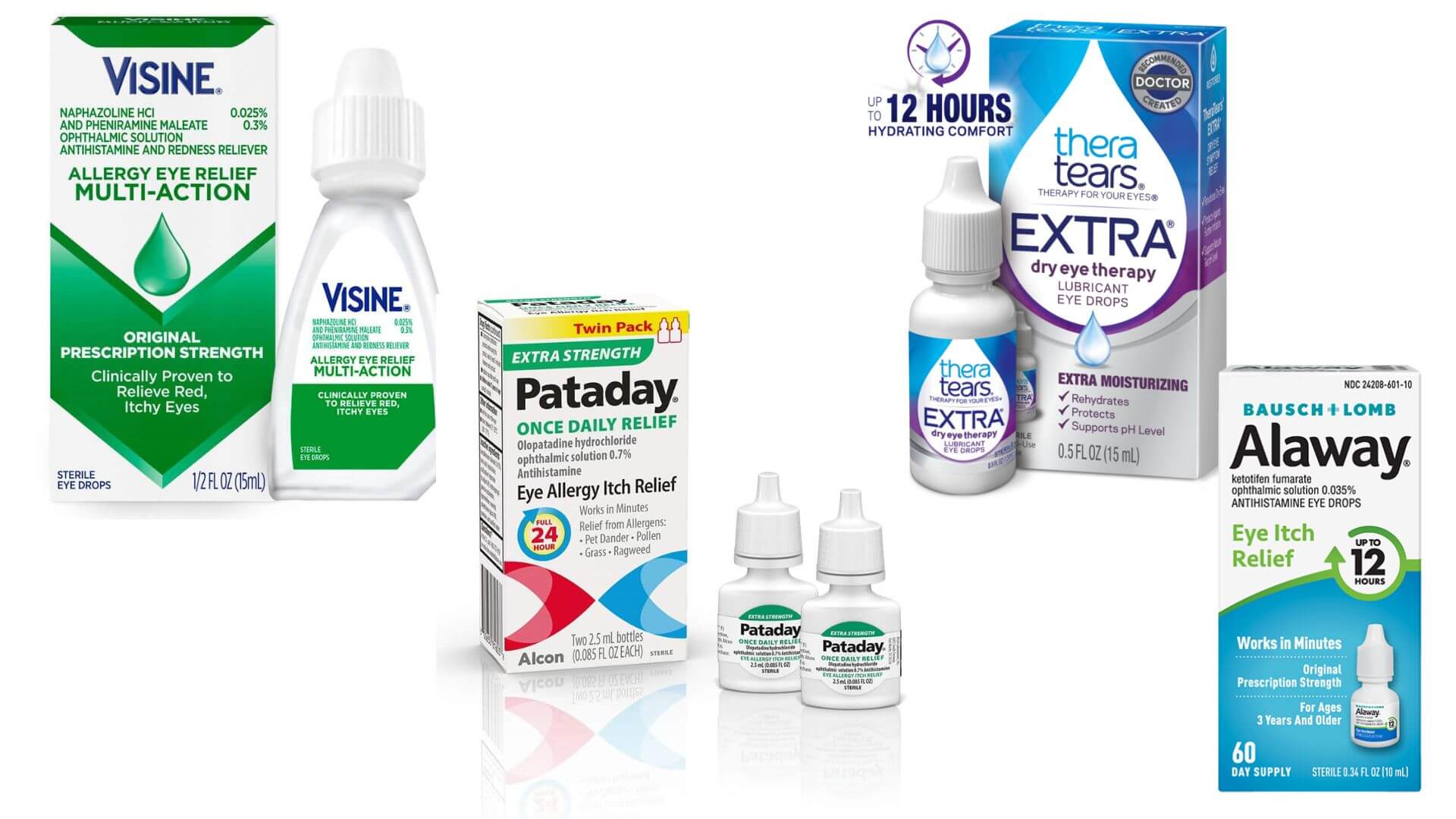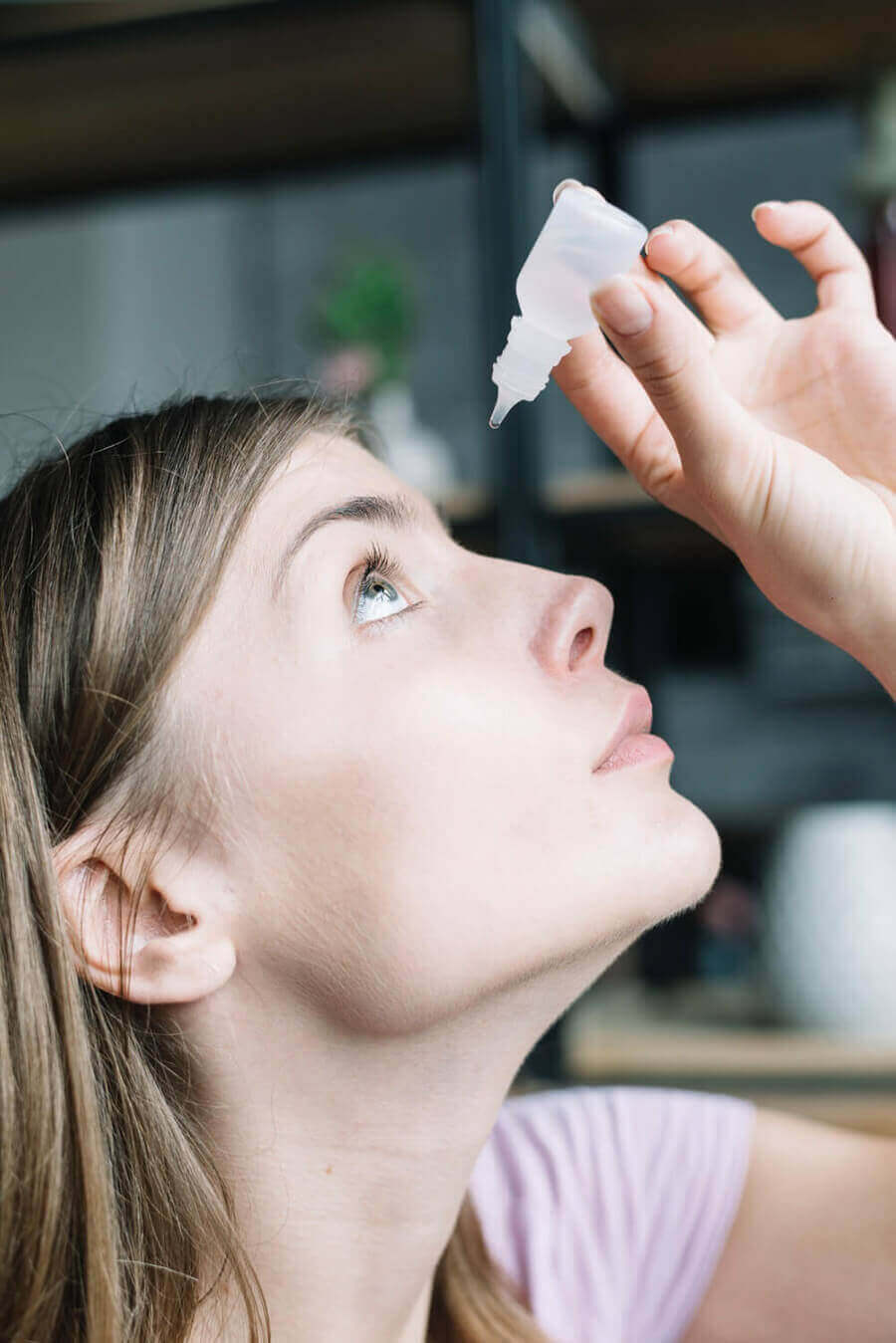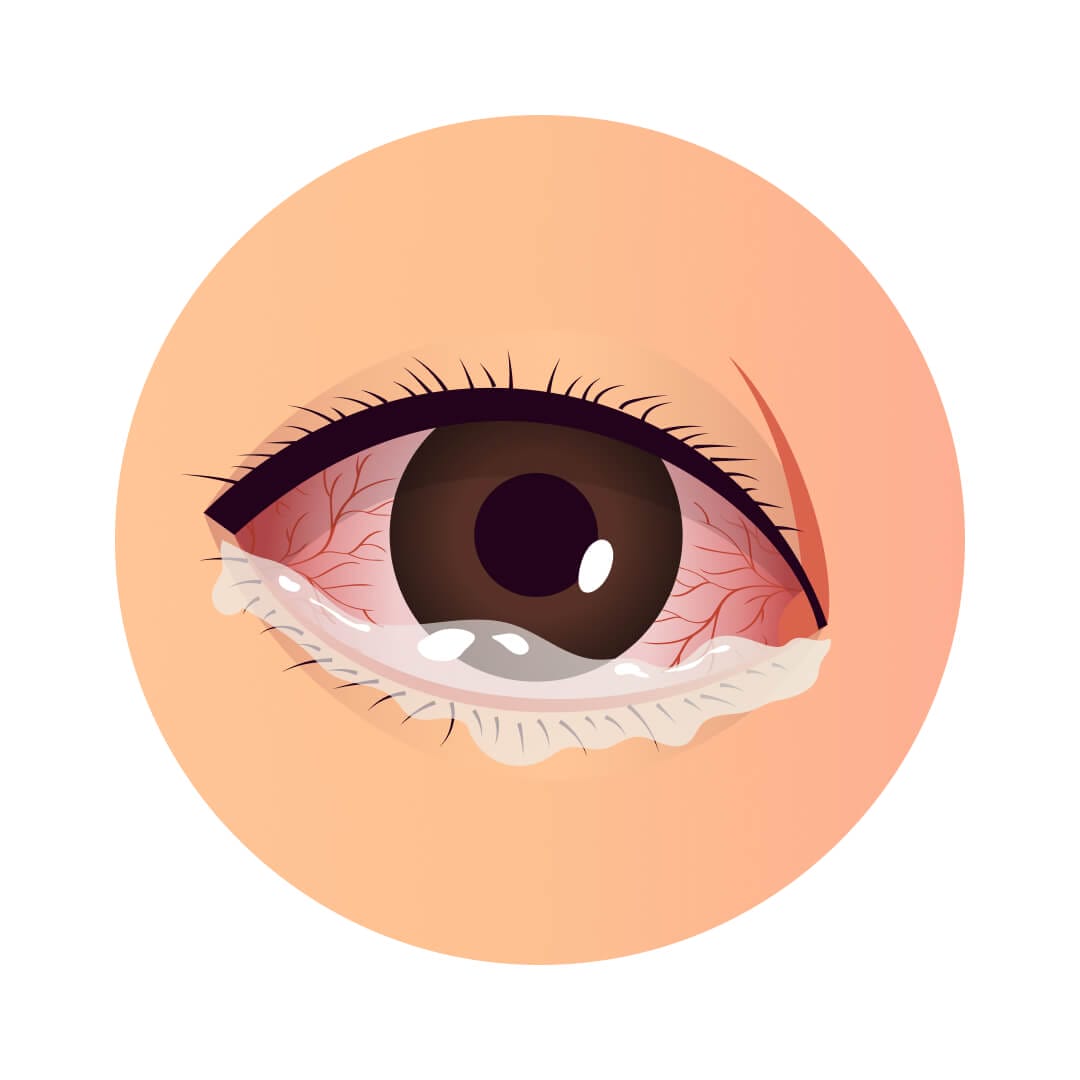Types of Eye Drops for Allergies
When it comes to managing eye allergies, not all eye drops are created equal. The best eye drops for your needs depend on the severity of your symptoms and how your body reacts to different treatments.
The vast majority of patients with eye allergies will see dramatic improvements of their symptoms by using a combination of artificial tears, avoidance of the allergen, and using topical antihistamines or mast cell stabilizers. As with all medication that is being used in the eye, always schedule an eye exam with an optometrist or ophthalmologist before using eye drops.
Below, we'll explore the various types of eye drops available for eye allergies in 2024, their mechanisms, and who might benefit from each.
1. Antihistamine Eye Drops (preservative free)
What They Do: Antihistamine eye drops are designed to quickly relieve itching and redness by blocking histamine, the substance your body produces during an allergic reaction.
Best For: Those who experience sudden, intense bouts of itching and need immediate relief. They're ideal for people who can identify their allergy triggers and anticipate when they'll need the drops.
Our Recommendation: Bausch + Lomb Alaway Antihistamine Eye Drops Another brand that is commonly recommended is ZERVIATE™ (cetirizine ophthalmic solution)
Alaway antihistamine drops work within minutes and provide meaningful symptom reduction for up to 12 hours. Available in preservative-free formulation, these drops are approved for patients 3 years and older.
Zerviate eye drops contain the well known antihistamine Cetrizine, and is approved for patients over the age of 2. These drops have been shown in clinical trials to work in minutes and remain effective for 8 hours of use.
2. Mast Cell Stabilizer Eye Drops
What They Do: Mast cell stabilizers work by preventing the release of histamine and other inflammatory substances before they can cause symptoms. They may take several days to take full effect but offer longer-lasting relief.
Best For: Individuals with persistent eye allergy symptoms who prefer a more preventative approach to managing their allergies.
Our Recommendation: ALCON Pataday Twice Daily Relief
Pataday is designed for long-term use and combines mast cell stabilization with antihistamine to reduce and prevent the onset of eye allergy symptoms and red eye with regular application.
3. Artificial Tears
What They Do: Artificial tears help to moisturize the eyes, diluting accumulated allergens and irritants. They provide a barrier of protection and relief from dryness and irritation.
Best For: Anyone experiencing dryness and irritation from allergies, especially those who spend long hours in front of screens or in dry environments.
Our Recommendation: Refresh Plus (preservative free)
These lubricating drops offer soothing relief and help restore the natural balance of your tear film and are available in single use vials without preservatives. Look for artificial tears that are watery, non-viscous, and preservative-free.
4. Combination Eye Drops
What They Do: Combination eye drops contain ingredients to combat multiple symptoms, such as antihistamines for itching and decongestants for redness.
Best For: Individuals with allergies and eye redness who prefer the convenience of a single product. Due to the presence of preservatives and decongestants, this product is only for short term use under the supervision of an eye doctor. Overuse of decongestants for redness relief can lead to a rebound effect that causes increased redness. Furthermore some patients may have a negative reaction to eye drops containing preservatives.
Our Recommendation: Bausch & Lomb Opcon-A Allergy Eye Drops
A combination formula for short term use that provides quick relief from both redness and itching.
Are Decongestant Eye Drops Recommended for Treating Eye Allergies?
What They Do: Decongestant eye drops reduce redness by constricting blood vessels in the eye. However, they don't address itchiness or swelling and can cause rebound redness with overuse.
Best For: Those looking for a quick fix for red eyes but are not suitable for management of eye allergy symptoms.
Our Recommendation: Due to the potential for worsening of symptoms and limited ability to treat eye allergy symptoms most eye doctors do not recommend decongestant eye drops for treating eye allergies. It's effective for temporary relief of red eyes but should be used sparingly to avoid worsening of symptoms through rebound effects.


















